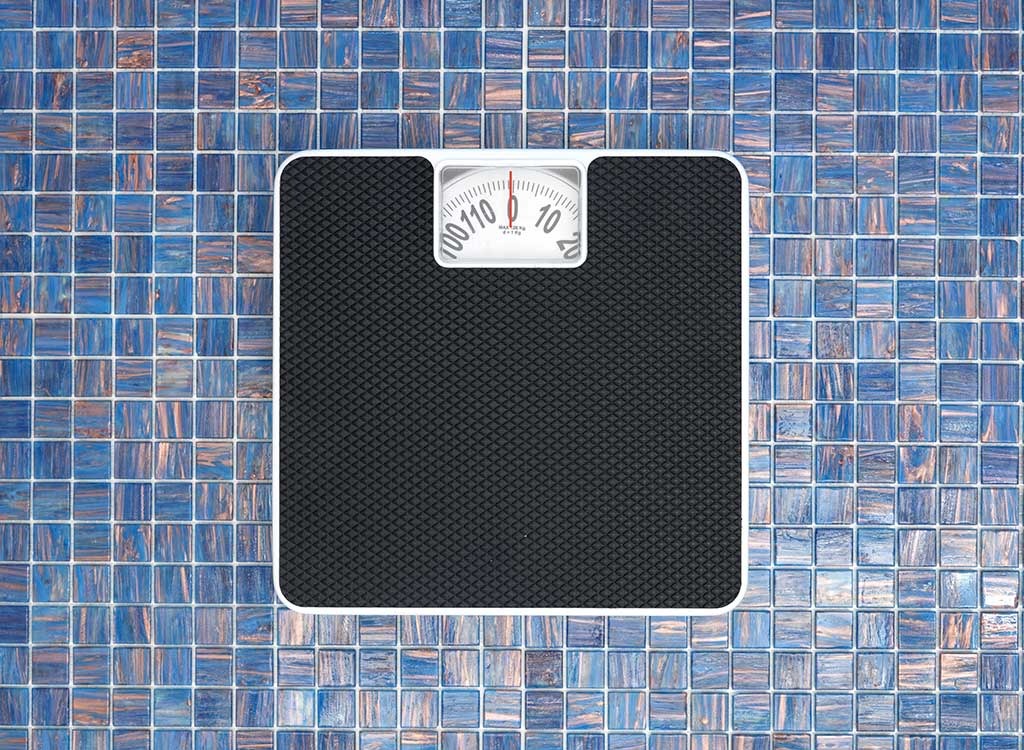14 Health Benefits of Eating Chocolate

Good news alert: Chocolate can enhance your health. The keyword here, though, is “can.” Depending on the exact chocolate you use (and of course how much of it you eat), you may or may not reap the fermented dessert’s wellness-boosting benefits.
“Look for at least 70% cocoa,” says Cordialis Msora-Kasago, RD, regional nutrition manager for Sodexo and spokesperson for the Academy of Nutrition and Dietetics. “The higher the percentage, the more nutritious the chocolate.”
“Also, check the label for other ingredients, like added sugar,” says Jeff Csatari, author of The 14-Day No Sugar Diet. Csatari elaborates that even if you get a bar that’s technically dark chocolate, it could still have a significant amount of sugar (and the calories that come with it). Because sugar displaces the health-promoting cacao solids, indulging in a sugar-sweetened treat will minimize many of the health benefits you’ve come to learn about dark chocolate.
However, if you do want a chocolate treat that’s a little more filling, you can always go with one paired with nuts, Msora-Kasago suggests. “Look for wholesome foods, like nuts, to enhance the efficacy of the chocolate,” she says.
As for the nutrients you get from higher-percentage dark chocolate and the health advantages that accompany it, let’s take a look at chocolate’s health benefits (and pitfalls). Think of it as permission to give in to a little chocolate craving every day.
And for more, don’t miss these 15 Classic American Desserts That Deserve a Comeback.
It lowers your risk of major diseases

Rich in flavonoids (potent antioxidants), chocolate works to help blood vessels relax, which decreases blood pressure, says Msora-Kasago. This leads to a plethora of benefits, like increasing HDL (or “good”) cholesterol and LDL (or “bad”) cholesterol, which can improve heart health.
Research backs this up, demonstrating that moderate chocolate consumption (up to six servings a week) can help lower your risk of rapid heart rate, which can lead to heart problems or stroke. Another study confirms this, showing a tasty chocolate bar can lower your risk of coronary heart disease, stroke, and diabetes, as long as you keep servings to six or less per week.
Looking for more ways to stay healthy? Be sure to sign up for our newsletter to get daily recipes and food news in your inbox!
It can relieve inflammation in the body

Inflammation can lead to lots of health issues, from diseases to headaches to sore muscles and tendons. Chocolate can provide an anti-inflammatory effect throughout your system, helping to stave off diseases and keep you healthy. One study found that cocoa polyphenols positively regulate the bacterial composition of the intestine—increasing the number of good gut bacteria—which can trigger this anti-inflammatory response. It’s no wonder dark chocolate is on our list of the 30 Best Anti-Inflammatory Foods!
It may prevent blood clots

One study published in the Journal of the American Heart Association offers evidence that chocolate polyphenols can increase blood flow. By widening your blood vessels and increasing blood flow, it can help decrease your risk of blood clots, Msora-Kasago explains.
It could support your mind

Besides making you smile when you eat it, chocolate also has positive effects on the brain. “Chocolate helps regulate the feel-good hormone serotonin and dopamine and can lift mood,” Msora-Kasago says.
Researchers have linked cocoa to improved attention, processing speed, and memory. Meanwhile, other science says it can keep your cognition in top shape. Msora-Kasago mentions that researchers are looking into its link to fighting off Alzheimer’s.
It could help with your weight

“For weight management, chocolate may play a role in reducing insulin resistance and keeping blood sugar levels in check,” Msora-Kasago says.
One study found that chocolate could reduce body weight and BMI in healthy individuals, if taken at 30 grams a day or more between four and eight weeks. (Keep in mind, this was a small subgroup.) Another says the treat could help obese individuals at risk of insulin resistance by reducing oxidative stress and inflammation.
It can improve your mood

“Chocolate helps regulate the feel-good hormone serotonin and dopamine, and can lift mood,” Msora-Kasago says. According to a review of eight chocolate studies in Nutrition Reviews, eating chocolate can help boost your mood and enhance your cognition, thanks to cocoa’s powerful flavonols. As they say, a little chocolate never hurt anyone and is a sure-fire way to make you smile.
It can keep your memory sharp

In a review article in Frontiers in Nutrition, research suggests that the flavanols in cocoa can help improve attention, processing speed, and working memory—all things you want on your side in order to succeed. Moreover, the study shows that cocoa flavonoids can keep your cognition in top shape by sending more blood flow to the hippocampus—the part of your brain where you form memories. What’s more, a study from The American Journal of Clinical Nutrition suggests that cocoa flavanols can help halt age-related cognitive decline.
It can help you manage your weight

One study from the Journal of Critical Reviews in Food Science and Nutrition found that chocolate could reduce body weight and BMI in healthy individuals if taken at 30 grams—that’s one ounce—a day or more between four and eight weeks. (Keep in mind, this was a small subgroup.) The key here: Watch your portion sizes and stick to bars with more cocoa than sugar.
It can improve obesity complications

According to a study in the European Journal of Clinical Nutrition, researchers found that a chocolate treat could help obese individuals at risk of insulin resistance by reducing oxidative stress and inflammation. “For weight management, chocolate may play a role in reducing insulin resistance and keeping blood sugar levels in check,” Msora-Kasago says. Be sure you’re staying away from any of these 17 Worst Foods to Eat That Would Horrify Your Doctor!
It can help you feel better during HIIT

You’ve probably heard that chocolate milk is a good choice post-workout for that perfect carb-protein combo. Well, dark chocolate can also help you during short bouts of intense exercise, one study from the Journal of the International Society of Sports Nutrition found. Dark chocolate reduces the amount of oxygen needed, so you can really kick it into high gear.
It will give you a pick-me-up

One ounce of dark chocolate with 70% cocoa has about 25 milligrams of caffeine. (For comparison, an eight-ounce cup of coffee has about 95 milligrams.) While it’s not a ton, you might get the jolt if you’re sensitive to the stimulant, so watch your intake close to bedtime.
It can increase your caloric intake

There are many health benefits to dark chocolate, but if you don’t stick to portion sizes, you could be consuming more calories than you’d like. Dark chocolate typically contains about 170 calories per ounce, which could add up if you go beyond a daily serving. The same goes for milk or white chocolate which can soar above 200 calories per serving.
As for gourmet chocolates, like those with fruity or creamy fillings? That’s where your calories could really take off. If you’re trying to drop some weight, This Is How Many Calories A Week You Should Eat For Weight Loss.
It can cause more sugar cravings

If you’re still reaching for sugar-laden milk or white chocolate, rather than real cocoa, you’re not doing your body as good as we’ve mentioned. Added sugar can cause lots of harm to your health, like increasing belly fat, crushing your mood, and upping your risk of diseases. Consuming too much of the sweet stuff can also cause you to crave more of it. It’s yet another reason why you’ll want to never order any of the 35 Sugariest Restaurant Meals on the Planet!
It’ll make you want more cocoa

Those chocolate cravings are no joke. And they could come from a chemical reaction in the brain. A study from Physiology & Behavior shows that chocolate can induce a drug-like brain response that keeps you coming back for more and more. So stay strong and stick to one serving.
For more, check out these 108 most popular sodas ranked by how toxic they are.








